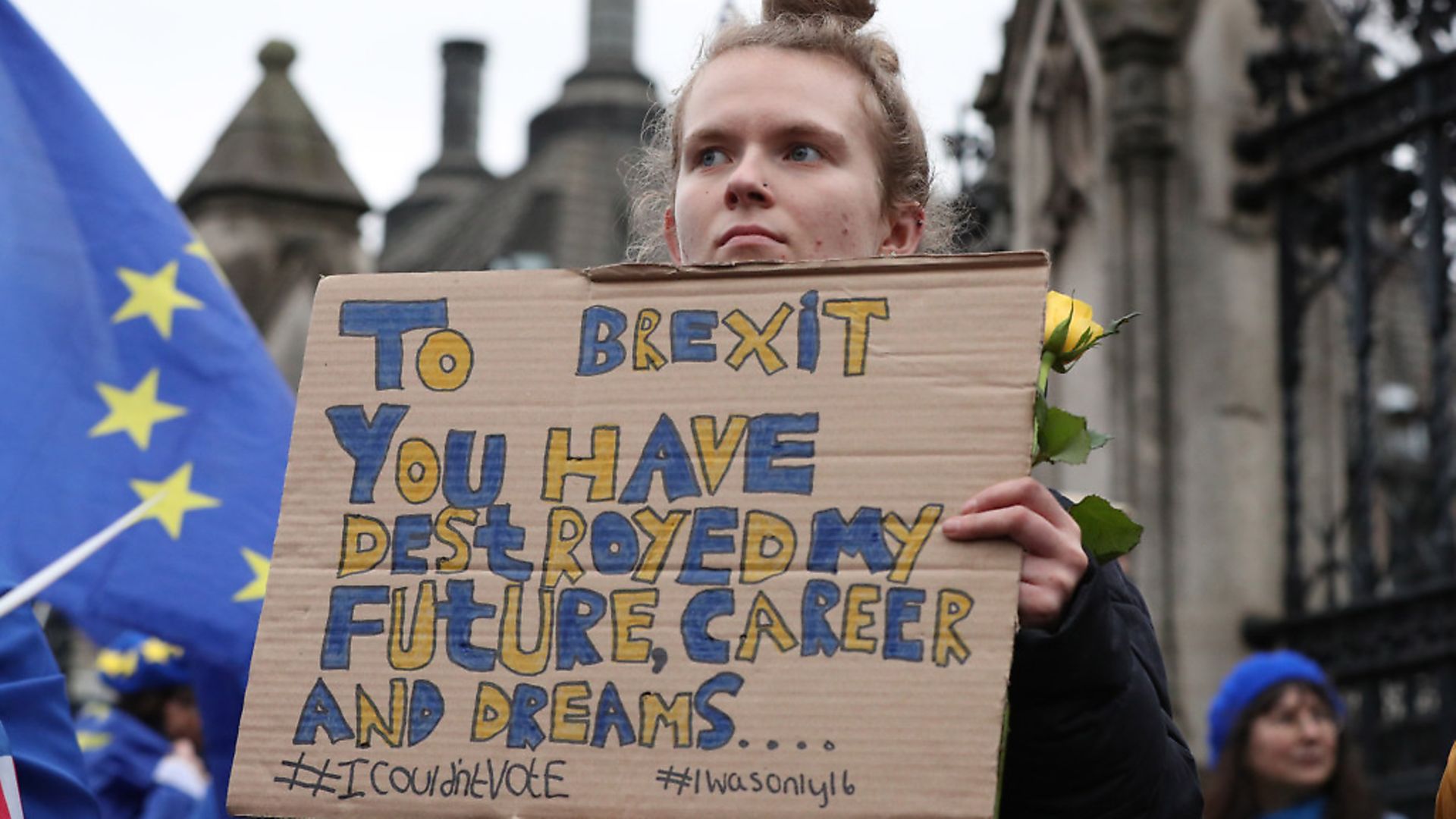
With Britain’s exit from the EU looming, ANDREW ADONIS says we must be optimistic – and formulate a bold plan for the future.
I feel unutterable sadness at our departure from the European Union this Friday. We are once again, as Orwell put it, a family with the wrong members in control, and the younger generation will pay a heavy price. Let’s now try to limit the damage.
Brexit Day itself is but the end of the beginning. It is the high point of Brexit. All the hard decisions are still to come. The transition period, until at least this December, means that nothing apart from the psychological changes immediately.
The only long-term decision taken in advance of Brexit is that one part of the UK, Northern Ireland, is effectively staying in the EU for good. This bodes ill for Brexit at large, since at the outset the issue is how far the UK itself is to be further divided.
Scotland and London voted heavily against Brexit at every stage: the referendum, the European elections last May and the general election just past. These are terrible omens threatening a dissolution of Britain itself through the independence of Scotland and the alienation from national government and the ruling party of the most dominant and dynamic city and region of England.
Whether Brexit Day is the beginning of the end of Brexit depends on what Boris Johnson now does. If he goes for a hard and rapid rupture, so there is a big social and economic shock next January, I would not rule out the rapid growth of a campaign to rejoin the EU.
If, as must be more likely, he goes for a longer and smoother departure, and a destination more like Norway and Switzerland, then we are in for a period, perhaps an era, of gradual, compound decline relative to Germany and France, rather like we experienced in the 1950s.
The issue then is whether the 2020s, like the 1950s, are followed by crisis decades like the 1960s and 1970s, where devaluation and accelerating industrial decline were thought to be unsustainable. Or whether gradual decline simply leads to more gradual decline, with London starting as Singapore and ending as Venice.
This is what I now intend to do and what I recommend to my friends in politics:
First, make the best of it. In our ambitions for Britain we must be optimists not pessimists, with a bold plan for the future. That’s why I am campaigning so hard for causes like HS2, a new era of house building, bigger and better schools and universities, and a new deal for the regions and cities of the Midlands and the north.
A federal constitution for the UK is a good idea, and I am glad to see Keir Starmer taking the lead from Gordon Brown. Until we distribute power better in our own country we will never be able to deploy it successfully abroad. That is one of the big lessons of Brexit.
Second, keep relations with Europe and the EU as strong as possible. I worry that the younger generation of politicians nowadays have virtually no contact with Europe beyond holidays with fellow Brits. The pan-European groupings of the centre-right and centre-left parties have disintegrated. Most Brits speak no other European languages and holidaying is all that many of them see of the continent.
It is vitally important that our universities remain bastions of European studies, exchanges and research. There need to be European components in all degree courses in politics, economics, society and law.
Third, even in this period of Brexit hubris, I am not closing the door on Britain seeking to rejoin the EU, perhaps quite soon. In politics, never rule out the best policy just because it lost a referendum by a small margin four years ago.
The absence of a second referendum on the actual terms of Brexit will create a growing sense of illegitimacy if it starts to go wrong. People like me will say, “this is what we feared and why the voters should have been asked. And since it didn’t happen then, it should happen now”.
I suspect we may be back in the EU sooner than people think.









